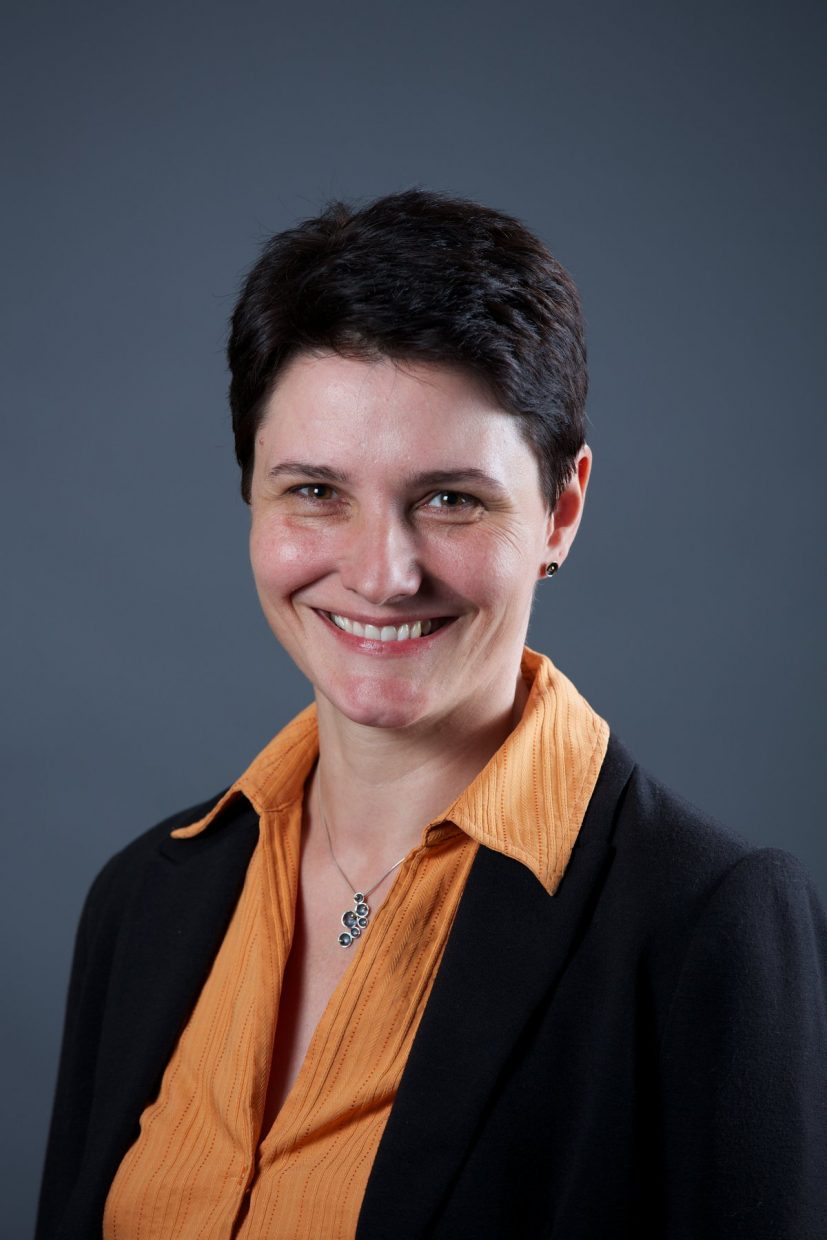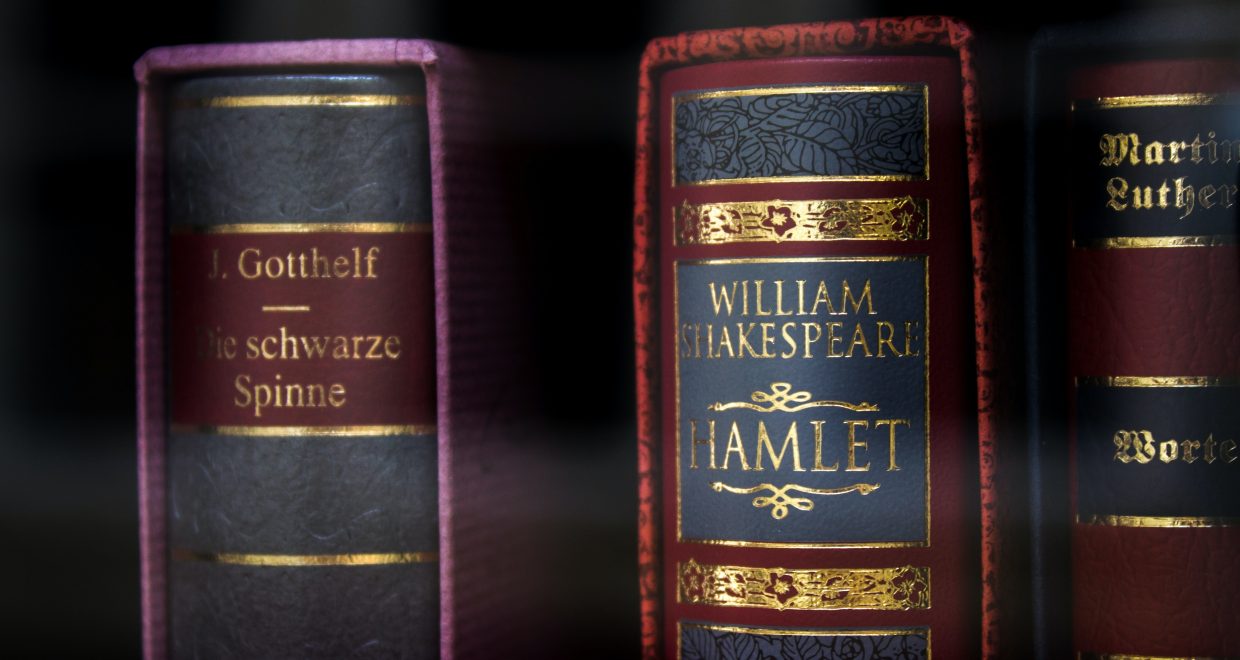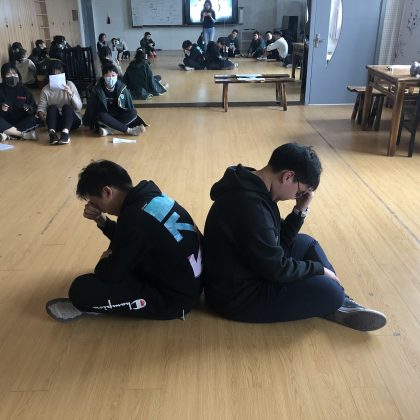Viral Shakespeare: Performance in the Time of Pandemic: An interview with Professor Pascale Aebischer
This month, we announced a publishing milestone, with Cambridge Elements reaching 500 titles. As part of our celebration, we spoke to Professor Pascale Aebischer, Professor of Shakespeare and Early Modern Performance Studies at the University of Exeter on her upcoming Cambridge Element.

Your upcoming Cambridge Element, Viral Shakespeare: Performance in the Time of Pandemic, is in production at the moment. What was the inspiration behind writing the book?
I’d just finished writing a book which had a big section dedicated to digital theatre broadcasts. So when the pandemic struck and theatres had to close their doors and open their digital archives, it was clear to me that the work I’d previously done had prepared me in a quite unique way to engage with this moment in which we were all sitting at home and accessing culture through our screens. I started watching all those Shakespeare productions that were being made available from theatres across the world and thought: someone really needs to document this moment in history and this complete shift away from physical to digital presence – and that someone might just be me. The outbreak of the pandemic accelerated trends that had started long before, but it also created new conditions in which new ways of creating and accessing culture, both individually and as a community, were possible.
This Element was written during the pandemic and focuses on some of our habits that changed during this time. Was that a different experience from previous publications you have written?
Yes, that’s what was so fascinating about this moment: the way it was both a continuation of what had gone on before, and a total rupture with it. Before, it had always been up to us to choose whether we wanted to access culture digitally or in person, and theatres knew that and catered for whichever audience they valued more. Or they catered for the two audiences in different ways – that’s the story behind ventures such as NT Live, which created a product that was very much focused on the in-person experience for their London audiences and a different, yet sold as identical (or near-identical) product for their remote audiences. But now, they only had their remote audiences, and they had to adapt really quickly to make sure that what they were putting on was going to somehow satisfy all their audiences and also help them survive the pandemic. And for the remote audiences, the conditions of viewing also changed radically: whereas before, they were often accessing digital theatre as a community in a cinema, now that community was dispersed across lots of individual households, spread across different geographical locations and even time zones. So what a community is, what an audience is, was redefined in that moment in which we were all watching plays together, but apart in our individual ‘bubbles’ or alone.
The nature of Elements, means that there is a quick turnaround from the initial idea to publishing, does this work in your favour as an author?
It forces you to work very differently and to write in a different way. For me, that was facilitated by the pandemic environment: I couldn’t go to the library, I couldn’t do the archival research I normally do. All I had were the resources of WiFi, electronic library, and the few books I’d managed to transport home from my office at work on the last day before the lockdown. For me, that forced a change in my writing from slow, polished writing which is strongly based on external evidence and aims towards objectivity and verifiability, towards a far more personal way of writing, in which what was in my head and in my heart was as important as evidence as what is on a piece of paper or in an archive. It was, frankly, both terrifying and liberating to be doing this type of work, but I learned a huge amount about both writing as a craft and about myself in the process. The book is very raw, very personal, and I think it gets to a different kind of truth and knowledge than my previous work.
Tell us more about your interest in Shakespeare…
In a way, I’m more interested in theatre and culture than I am in Shakespeare. Put it differently, I’ve always loved plays and playing, and Shakespeare is just such a central figure in English-language theatre that I’m drawn to those plays because they keep being performed and keep yielding new meanings. I’m not sure that they yield those new meanings because Shakespeare wrote them; it’s rather that it’s the fact that they’re so frequently performed and have become such a common property that makes them such good material to be played with, over and over again.
Who have been your key literary influences?
For this book, it was the weirdly episodic plague writing of Daniel Defoe and Thomas Dekker, really, which juxtaposes statistics and facts about the plague with a sharp focus on specific scenes. Those little vignettes then take on symbolic weight by virtue of the detail with which they are described, and come to stand for so much more. Additionally (within the field of Shakespeare performance studies), the work of my mentor and friend, Barbara Hodgdon. Barbara passed away a couple of years ago, so one of last pieces of writing I did before writing this Cambridge Element was to introduce some of her work for a posthumously published book (the aptly named Ghostly Fragments). In order to write about her work, I immersed myself in it once again and I fell in love, all over again, with that wistful, personal note in her writing. Rather like the crack in the voice of Judi Dench, Barbara’s is a form of writing that is both rough and gentle at once, and uniquely hers. It’s impossible to imitate, I think, because it is so linked to her particular body, her individual experiences of watching Shakespeare. But I guess this Element is a way of paying tribute to Barbara’s mode of writing which haunts me.
Do you have a favourite Element?
That’s a mean question to ask me! I’ll have to go with two: Harry McCarthy’s Performing Early Modern Drama Beyond Shakespeare, which is based on some of the work he did while I was still lucky enough to be his PhD supervisor – so that one feels very special, and it’s excellent. And Robert Shaughnessy’s tiny tour-de-force About Shakespeare, which manages to do so much in such little space. What a legend.
What are you reading at the moment?
An utterly brilliant book: Brit Bennett’s The Vanishing Half. It’s compelling, harrowing, and beautifully written. A must-read!
What is next on the horizon for you?
I’m currently leading the coordination of all of the Covid-19 research projects funded by the Arts and Humanities Research Council in the UK. My job is to work with a superb team of colleagues at the University of Exeter to ensure that the work of these researchers reaches the right audiences and is able to influence key decisions in the strategic response to the pandemic and how we can deploy arts-based methods and ways of thinking to try and solve some of the problems that have arisen because of or have been exacerbated by Covid-19. So I’m throwing all my energy into the urgent problems of the present, without raising my eyes much to look at the horizon at all. But it’s fascinating work, and I’m learning so much from all the people I’m meeting through this role! They’re utterly inspiring in the way they’ve dedicated themselves to the task of helping the most vulnerable in our community and ensuring that we don’t lose sight, in our response to the pandemic, of core principles and values such as human rights, the duty of care, and the joy of shared creativity.
Professor Aebischer’s Element, Viral Shakespeare is expected to be published and available online on Cambridge Core by December 2021. Pre-order now.






